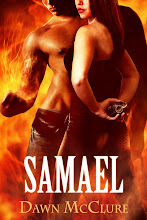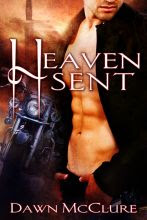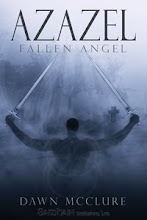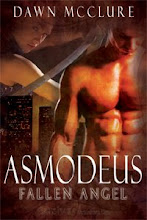So you think you’re an author? THINK AGAIN.
If you plan to sit down and write about your character, you’re making one hell of a mistake.
I’ll admit that I’ve jotted down what I’ve believed to be a kick-ass scene, sent it to my crit partner, then sat back in my chair after I’ve hit send, all excited and antsy. She’s going to love this shit. My heroine just got shot, she’s hanging on by a thread, and the hero is out of his ever-lovin’ mind with concern. The villain is closing in and their world is about to come crashing down around them. Bwahahahahaha…
Yeah, and then an IM from my crit partner shatters my euphoria when the box pops on my computer screen.
Crit Partner: I’ll call you.
Oh, crap. Oh, crap! As I wait for the phone to ring, knowing damn well she didn’t like it, I try to dissect the scene in my head to figure out where I went wrong. I churn it over in my mind, think about the details and the environment, the plot structure and the motivation. Nope. Pretty sure I rocked that bitch.
The phone rings. I pick it up and the first thing I hear is a sigh, like my crit partner doesn’t want to say just how bad she thought my scene was. Even better, she goes on to explain that the scene was great, the action was there, the story picked up…but she didn’t feel it. I nod my head, even though she can’t see me, and think, WTF? How did she not sympathize with my heroine who’s bleeding all over the wet asphalt in a torrential downpour while the hero holds her gently in his arms, rocking her back and forth? Not to mention the villain is about to pop on the scene and obliterate their pathetic asses. Break out the Kleenex!
Me: “Uh, so you liked scene, you thought the action was good, and the plot thickened. What exactly is the problem?”
Crit Partner: “Lack of deep POV.”
All right, let’s just pause right there. Listen, I’ve been published before. I know my biz. I’m not JR Ward, Christine Feehan or Sherrilyn Kenyon, but I think I can produce a pretty decent paranormal. Reviewers often give me great reviews – one reviewer proclaiming, “I stayed up until 5 AM because I simply couldn’t quit reading this book. That, dear readers, is a sign of a good book if ever I’ve seen one!” and another, “I could go on, but suffice to say this book has it all as far as I'm concerned - fabulous characters, an original plot, humor, and scorching sex. This is an absolute must-read!”
I’ve even received fan mail, for God’s sake. And now, after having published four books someone tells me I’m missing an integral piece of my craft? I struggle with deep POV? Seriously?
So I did what every other author would do. I got out my favorite romance novel, Lover Awakened, and read some of it. Oh yeah, deep POV all over the place. In fact, I find it hard to put the book down, spending over an hour with it in my greedy little palms, even though I’ve read it several times before. Ward immerses you in the character’s emotions, and you come to a point where the words on the page blur and you’re just IN the story and experiencing everything her characters are going through.
Then I do the unthinkable. [WARNING: Don’t try this at home after reading a Ward book.] I open up my manuscript and read through the scene I sent to my crit partner earlier that day (who’s all butt-hurt because she didn’t want to tell me I sucked, btw). I come up on a whole lot of he did this and she did that, and B-O-R-I-N-G. Sure, the heroine is wrapped up all snug-as-a-bug in the hero’s arms as her life blood seeps out, but what the hell is she feeling? Gah! I created a visual scene, went all psycho with blood pooling around them, the downpour of the storm and the shadows of the darkened alley, but I did it all with zero emotion. Does the heroine regret that the hero has to watch her die? Is she scared shitless? Is she growing cold? Does the hero’s hand shake when he smoothes the hair from her face? Does he feel incompetent to save her, or is he trying to show a brave front in hopes of making her passing easier? (Well, of course she doesn’t die, but he doesn’t know that.)
I keep reading, thinking I’m all sneaky with the villain closing in. Bring on the conflict! Hit the main characters with more crap and the emotional impact will blow the reader away!
Um, no. I didn’t really write it that way. What I saw in my head was not on the paper (er, screen) at all. The hero gritted his teeth. The villain smiles that evil little smile only those a-holes with black hearts can pull off. I read it again, figuring I must have missed all the awesomeness I was sure I’d slathered all over the pages.
Nope. Gritted teeth from hero. Smile from villain.
Well, I’ll be damned. Don’t shed a tear or anything as the LOVE OF YOUR LIFE DIES IN YOUR ARMS, and the man responsible for it traipses into the picture and points a gun at you. Yeah dude, grit your teeth and act all beta hero. Jerk.
So, after I got all mad at my pitiable hero (who’d only done what I told him to do, the pathetic jackass), I went back to square one to think about it for a while. I put the scene in the hero’s point of view. [This is very important, so if you’re going to highlight anything, highlight this]: Don’t sit down to write about the hero, BE the hero. Flex those biceps, baby! [End highlight. :)] Suddenly, I AM the hero, and the scene unfolds in my mind as I live it, and I just let the emotions bounce around in my noggin for a while…
My palms are sticky with warm blood, I see the ashen pallor of my woman’s face, and it’s then that the implication of the certain outcome hits me…I’m not just losing someone close to me. I’m losing my heart. My soul. She’s immortal. How can she be dying in my arms –
The motherfucker responsible steps out of the shadows of the alley, drawing my gaze. My eyes sting when my pupils dilate ominously.
I open my eyes to edit, allowing the disturbing emotions free rein to submerse me in the character. Um, I mean I AM the hero.
Now that I’m the hero, I have to write down everything I’m seeing, and all my emotions, while my lover dies in my arms. Cue 80’s love ballad, (I just) Died in Your Arms tonight.
Lesson to be learned from this article: Become your character. (<-- I’d highlight that as well.) :)
One way to tell you’re not in deep POV is passive voice. Here are a few tips on passive voice I received from my editor for my first manuscript. (I still have to weed these words out of my first drafts because I’m a slow learner or something. Someone pass me a Xanex, please.) Keep an eye on the following phrases:
– “he felt” “she felt” “he knew” “she knew” “knowing” “realizing” “found herself wondering” “heard” –
For example: She found herself wondering if he even had a heart.
Better: Did the bastard have a heart, or was he as cold as his reputation suggested?
So, if you plan to sit down and write about your character, you’re making one hell of a mistake.
You ARE your character.

























